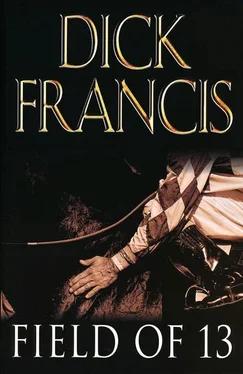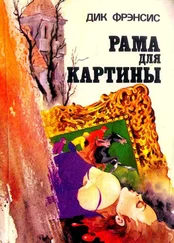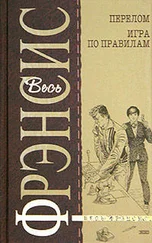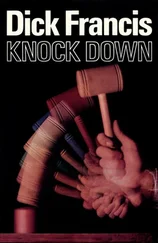My thanks to a whole host of researchers:
MARY
MERRICK FELIX
JOCELYN
ANDREW
JEFFREY JENNY
LAWYERS GALORE
Prologue
Notes on the Racecard
Tell me a story, and tell it strong and quick.
Tell it so I go to sleep at bedtime. No bloody corpses, no horrors, no hung, drawn and quartered heroes.
Can’t promise that there won’t be any deaths. Still, bodies were not my brief.
Amuse, enthuse, raise the protest, sink the fearsome terror. Pull wide a window, watch the play within. Close the curtains. Try the next house, look into the fridge there, tumble its ice cubes down sleepy necks.
Thirteen assorted flavours. Recipes second to size. Never mind the contents, feel the length. Three thousand best words, here please, and eight thousand or so there. Newspapers and magazines like to cut the tale to fit the space. (Don’t get me wrong, I enjoy the game.) So some of the excursions are longer and some are short. Some have tight belts, others float.
Some date from way back, some are recent. Meet a few old friends here. See if new acquaintances shake hands.
If one has to be plain, eight of these thirteen stories were originally commissioned by various publications who kindly dictated only length, not content. The other five stories are new, their length — and content — my choice.
When the field of thirteen runners were assembled and ready to parade to the start, there arose as in all of life the question, ‘Who Goes First?’ Should the book lead off with the first story written? Did primogeniture rule?
Leave it to chance, we said in the end, so we held an impromptu draw.
‘We’, in this instance, meant four of us gathered contentedly for a before-lunch drink. ‘We’ are my wife Mary, my son Felix, my literary agent Andrew Hewson and myself.
We wrote the titles of the thirteen stories on thirteen sticky-back labels and folded them up carefully, and put them into a splendid glass champagne cooler that had been given to my wife and me by Phyllis and Victor Grann as a house-warming present for our apartment beside the Caribbean Sea. (Mrs Phyllis Grann is the President of PenguinPutnam Inc., who publish D. Francis in the USA.)
The four of us took turns to stir the folded labels in the cooler and pick one out.
Each choice was unfolded, read, and sticky-backed in order onto a board. Thirteen labels... three picks each, with the thirteenth and last left to me.
We drew lightheartedly. To be honest, we thought we’d want to fiddle around with the result. But to our amazement it came out pretty well as we would have chosen, so we left it unchanged.
The stories appear in Field of 13 exactly in the order that their titles came out of the champagne cooler... and yes, after that, we put champagne into the cooler... and drank to the Draw... what else would one expect?
Time has an uncanny way of laughing at fiction. The goings-on of a bomb-scare at Kingdom Hill — an imaginary racecourse — were invented for the summer entertainment of readers of The Times newspaper in 1975. Years later the major fantasy was put into fact: a bomb hoax halted the running of the 1997 Grand National Steeplechase at Aintree .
There has been a great change in security and the value of money since Tricksy Wilcox had his brainwave. At Kingdom Hill and throughout Field Of 13, money and usages have been millenniumised .

Thursday afternoon, Tricksy Wilcox scratched his armpit absent-mindedly and decided Claypits wasn’t worth backing in the 2.30. Tricksy Wilcox sprawled in the sagging armchair with a half-drunk can of beer within comforting reach and a huge colour television bringing him the blow-by-blow from the opening race of the three-day meeting at Kingdom Hill. Only mugs, he reflected complacently, would be putting in a nine to five stint in the sort of July heatwave that would have done justice to the Sahara. Sensible guys like himself sat around at home with the windows open and their shirts off, letting their beards grow while the sticky afternoon waned towards evening.
In winter Tricksy was of the opinion that only mugs struggled to travel to work through snow and sleet, while sensible guys stayed warm in front of the TV, betting on the jumpers; and in spring there was rain, and in the autumn, fog. Tricksy at thirty-four had brought unemployment to a fine art and considered the idea of a full honest day’s work to be a joke. It was Tricksy’s wife who went out in all weathers to her job in the supermarket, Tricksy’s wife who paid the rent on the council flat and left the exact money for the milkman. Eleven years of Tricksy had left her cheerful, unresentful, and practical. She had waited without emotion through his two nine-month spells in prison and accepted that one day would find him back there. Her dad had been in and out all her childhood. She felt at home with the minor criminal mind.
Tricksy watched Claypits win the 2.30 with insulting ease and drank down his dented self-esteem with the last of the beer. Nothing he bloody touched, he thought gloomily, was any bloody good these days. He was distinctly short of the readies and had once or twice had to cut down on necessities like drink and fags. What he wanted, now, was a nice little wheeze, a nice little tickle, to con a lot of unsuspecting mugs into opening their wallets. The scarce ticket racket, now that had done him proud for years, until the coppers nicked him with a stack of forged duplicates in his pocket at Wimbledon. And tourists were too fly by half these days, you couldn’t sell them subscriptions to non-existent porn magazines, let alone London Bridge.
He could never afterwards work out exactly what gave him the great Bandwagon idea. One minute he was peacefully watching the 3 o’clock at Kingdom Hill, and the next he was flooded with a breathtaking, wild and unholy glee.
He laughed aloud. He slapped his thigh. He stood up and jigged about, unable to bear the audacity of his thoughts sitting down. ‘Oh Moses,’ he said, gulping for air. ‘Money for old rope. Kingdom Hill, here I come.’
Tricksy Wilcox was not the most intelligent of men.
Friday morning, Major Kevin Cawdor-Jones, Manager of Kingdom Hill Racecourse, took his briefcase to the routine meeting of the Executive Committee, most of whom detested each other. Owned and run by a small private company constantly engaged in boardroom wars, the racecourse suffered from the results of spiteful internecine decisions and never made the profit it could have done.
The appointment of Cawdor-Jones was typical of the mismanagement. Third on the list of possibles, and far less able than one and two, he had been chosen solely to side-step the bitter deadlock between the pro one line-up and the pro two. Kingdom Hill in consequence had acquired a mediocre administrator; and the squabbling executives usually managed to thwart his more sensible suggestions.
As a soldier Cawdor-Jones had been impulsive, rashly courageous, and easygoing, qualities which had ensured that he had not been given the essential promotion to Colonel. As a man he was lazy and likeable, and as a manager, soft.
The Friday meeting as usual wasted little time in coming to blows.
‘Massive step-up of security,’ repeated Bellamy, positively. ‘Number one priority. Starting at once. Today.’
Thin and sharp featured, Bellamy glared aggressively round the table, and Roskin as usual with drawling voice opposed him.
‘Security costs money, my dear Bellamy.’
Читать дальше





